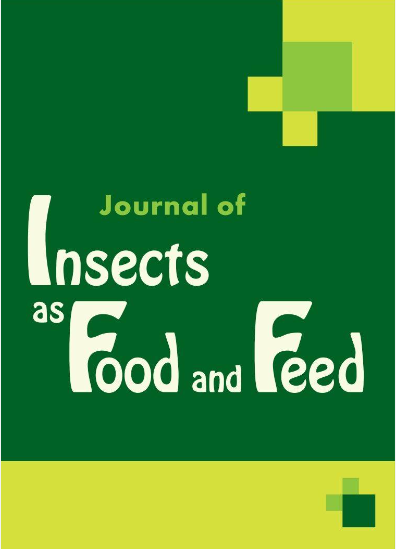打造包容性的食用昆虫产业:澳大利亚的观点
IF 3.5
3区 农林科学
Q1 ENTOMOLOGY
引用次数: 0
摘要
澳大利亚新兴的食用昆虫市场(用于人类食品和动物饲料)具有广阔的增长潜力。澳大利亚拥有食用60多种本地昆虫的悠久文化传统、强大的研究能力和丰富的行业经验,新生的澳大利亚行业完全有能力成为食用昆虫行业的领导者。在此,我们强调需要建立一个具有包容性的行业,重点是让土著领导人能够加入该行业。我们还强调需要对本地昆虫物种进行新的基础研究,并投资支持现有企业和新企业,以此作为行业发展战略的一部分。该领域的研究和业务发展需要强有力的土著领导和指导方针,以承认和保护具有文化食性的昆虫物种的传统所有权。这是为了保证土著文化和知识产权的适当知识和利益共享。在澳大利亚,这种优先考虑土著居民和托雷斯海峡岛民参与的模式可能会在其他国家得到应用和实施,以实现一个包容性的产业。本文章由计算机程序翻译,如有差异,请以英文原文为准。
Towards an inclusive edible insect industry: perspectives from Australia
The emerging edible insect market (for human food and animal feed) has a promising growth potential in Australia. With a long cultural tradition of consuming more than 60 native insect species, strong research capabilities and industry experience, the nascent Australian industry is well positioned to become a leader in the edible insect sector. Here, we highlight the need for an inclusive industry with a focus on enabling Indigenous leadership to join the industry. We also stress the need for new foundational research of native insect species and for investment to support current and new businesses as part of a strategy to grow the industry. Research and business development in this space needs strong Indigenous leadership and guidelines to recognise and protect traditional ownership of culturally eaten insect species. This is to guarantee appropriate knowledge and benefit sharing of Indigenous cultural and intellectual property. This model of prioritising Aboriginal and Torres Strait Islander people participation in Australia may be of use and implemented in other countries to achieve an inclusive industry.
求助全文
通过发布文献求助,成功后即可免费获取论文全文。
去求助
来源期刊

Journal of Insects as Food and Feed
Agricultural and Biological Sciences-Insect Science
CiteScore
7.00
自引率
17.60%
发文量
133
期刊介绍:
The Journal of Insects as Food and Feed covers edible insects from harvesting in the wild through to industrial scale production. It publishes contributions to understanding the ecology and biology of edible insects and the factors that determine their abundance, the importance of food insects in people’s livelihoods, the value of ethno-entomological knowledge, and the role of technology transfer to assist people to utilise traditional knowledge to improve the value of insect foods in their lives. The journal aims to cover the whole chain of insect collecting or rearing to marketing edible insect products, including the development of sustainable technology, such as automation processes at affordable costs, detection, identification and mitigating of microbial contaminants, development of protocols for quality control, processing methodologies and how they affect digestibility and nutritional composition of insects, and the potential of insects to transform low value organic wastes into high protein products. At the end of the edible insect food or feed chain, marketing issues, consumer acceptance, regulation and legislation pose new research challenges. Food safety and legislation are intimately related. Consumer attitude is strongly dependent on the perceived safety. Microbial safety, toxicity due to chemical contaminants, and allergies are important issues in safety of insects as food and feed. Innovative contributions that address the multitude of aspects relevant for the utilisation of insects in increasing food and feed quality, safety and security are welcomed.
 求助内容:
求助内容: 应助结果提醒方式:
应助结果提醒方式:


